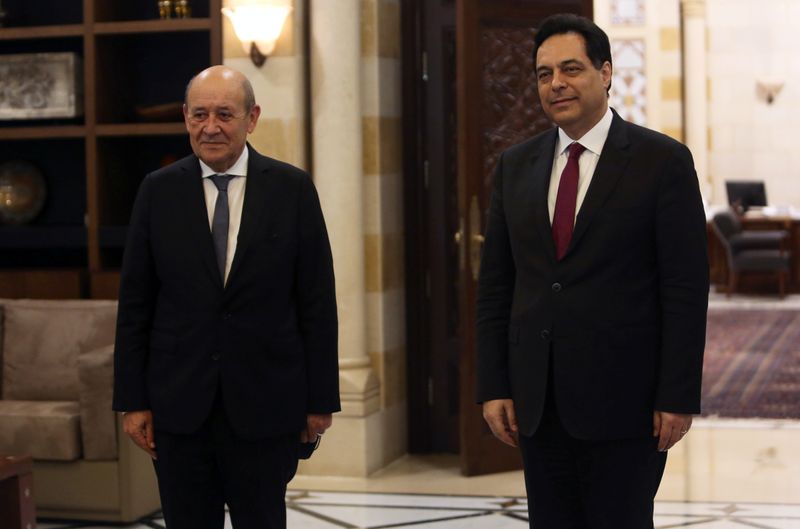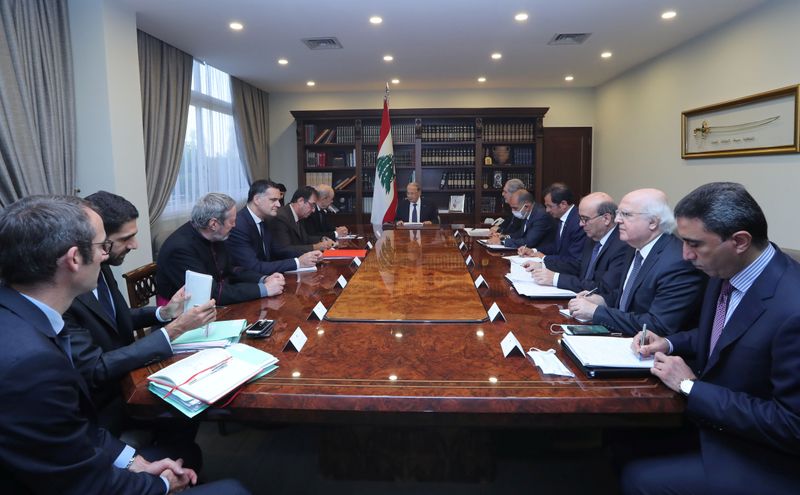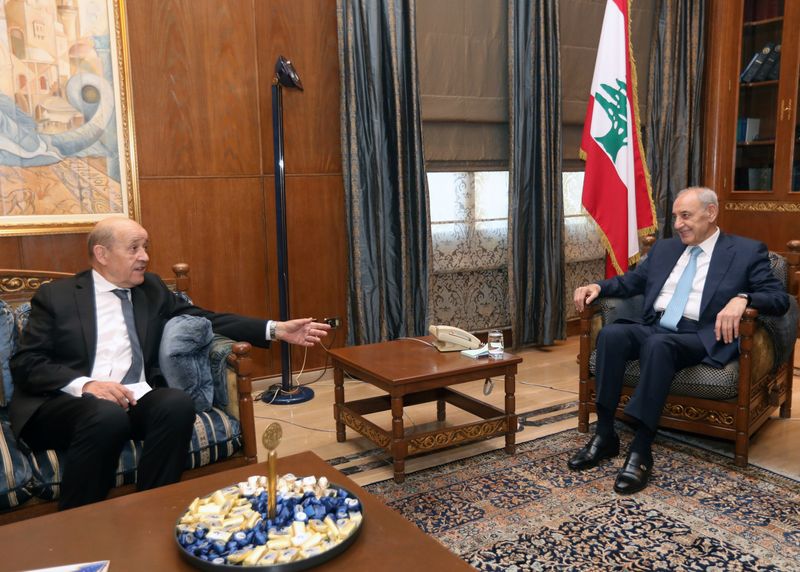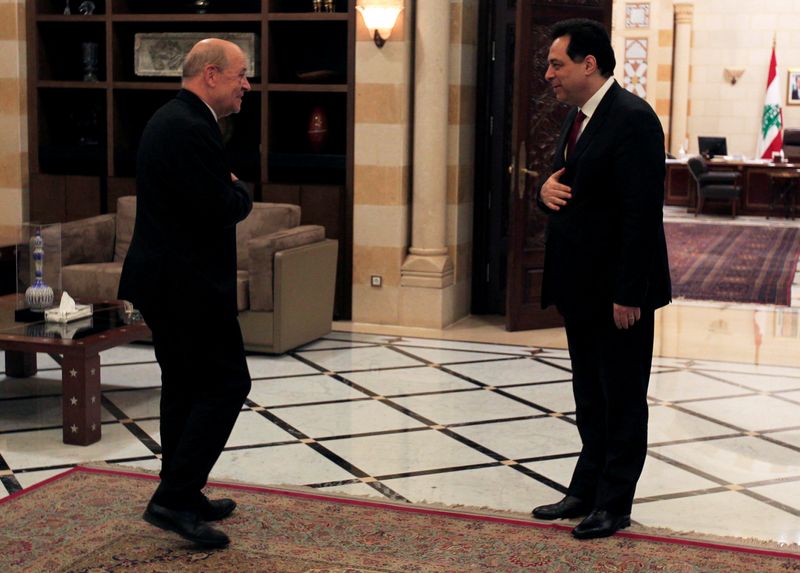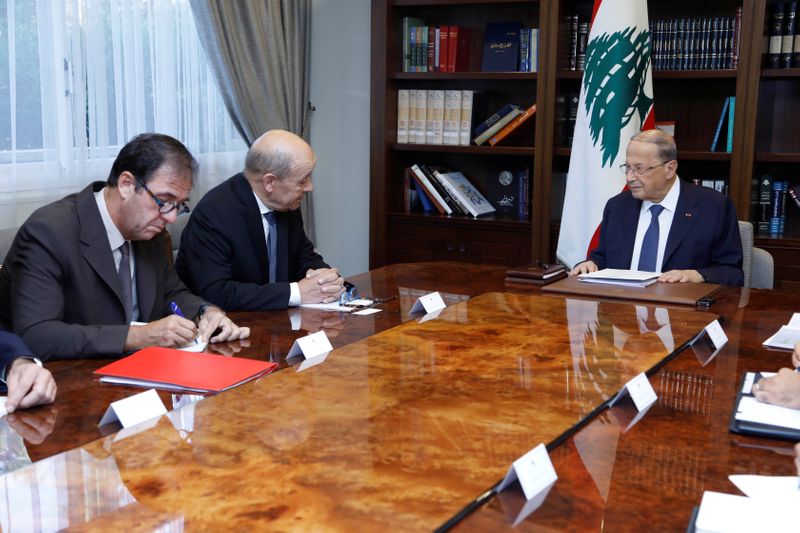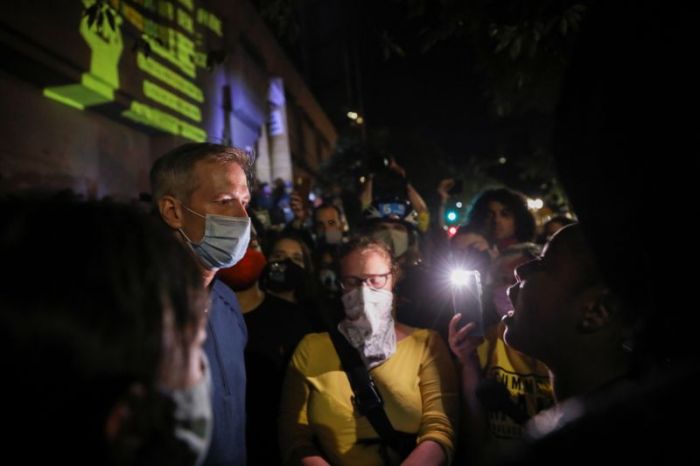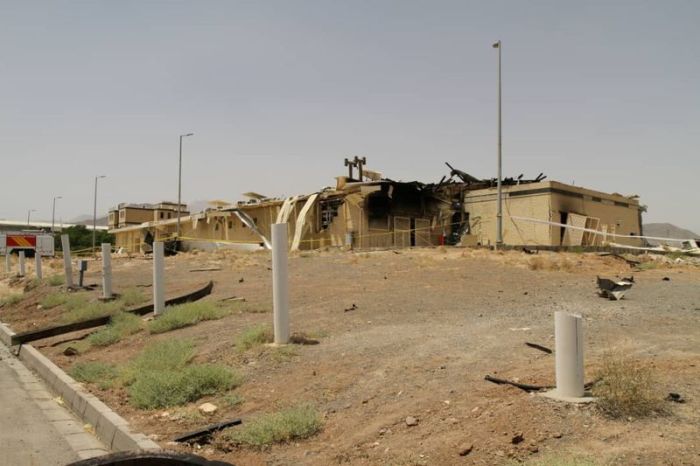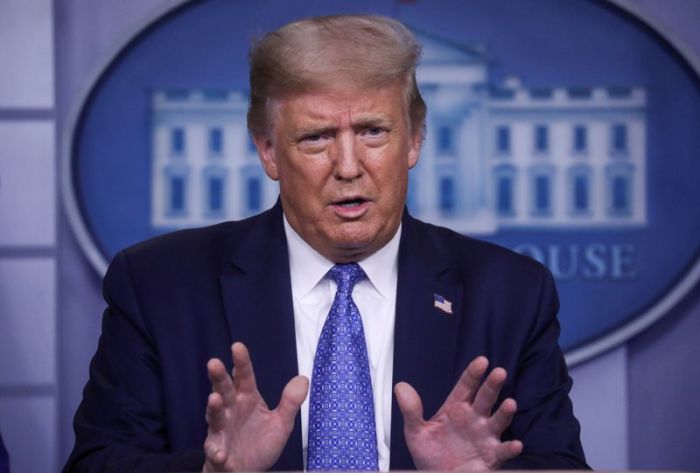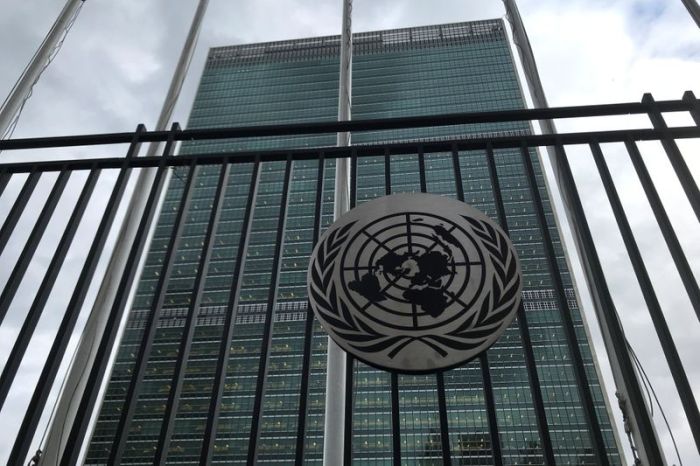BEIRUT (Reuters) – France told Lebanon on Thursday it had no option other than an IMF deal to escape a financial crisis worsening by the day, and Beirut must enact reforms urgently if it is to win foreign aid.
Lebanon desperately needs such aid as it wrestles with a financial meltdown rooted in decades of state corruption and waste. The crisis marks the biggest threat to its stability since a 1975-90 civil war.
“‘Help us help you’ is the message of my visit,” Foreign Minister Jean-Yves Le Drian said after meeting Lebanese leaders in Beirut. He said that Paris stood ready to mobilise support but that there must be action on reform.
“Lebanon is in a very worrying situation. The economic and financial crisis is raging,” he said. “It has concrete, dramatic consequences for the Lebanese who are getting poorer day by day.”
A collapsing currency has sent inflation soaring, raising fears of mass hunger, with savers frozen out of their accounts in a paralysed banking system.
Former colonial ruler France has led efforts to get Lebanon to implement reform, hosting a donor meeting in Paris in 2018 when Beirut won more than $11 billion in pledges for infrastructure investment. The money hinged on reforms which were promised but not delivered.
Lebanon entered negotiations with the International Monetary Fund (IMF) in May after defaulting on its hefty foreign currency debt. But the talks have been put on hold in the absence of reforms and as differences arose between the government, the banking sector and politicians over the scale of the country’s vast financial losses.
“NO ALTERNATIVES”
“Be under no illusions. There are no alternatives other than an IMF programme to allow Lebanon to come out of the crisis,” Le Drian said on Thursday. “The need for change is known by all.”
Donors also want to see progress in fixing the state-owned electricity grid, which loses up to $2 billion a year in public funds while failing to meet the country’s needs.
Le Drian said steps on that front were “not encouraging” so far. “France will always stand by Lebanon…to help you in these difficult times. But for this to work, the Lebanese authorities must do their part.”
He added it was essential for Lebanon to respect a policy of staying out of conflicts in the region, where the Lebanese Shi’ite Hezbollah movement is allied with Iran in its power struggle with mainly Sunni Gulf Arab states.
“Only reform can stop the economic decline. There is no alternative,” British ambassador Chris Rampling also said in a tweet. “And only disassociation can keep Lebanon safe from regional turmoil.”
(Additional reporting by Tom Perry and Ghaida Ghantous in Beirut, John Irish in Paris; Editing by Andrew Cawthorne, William Maclean and Hugh Lawson)

